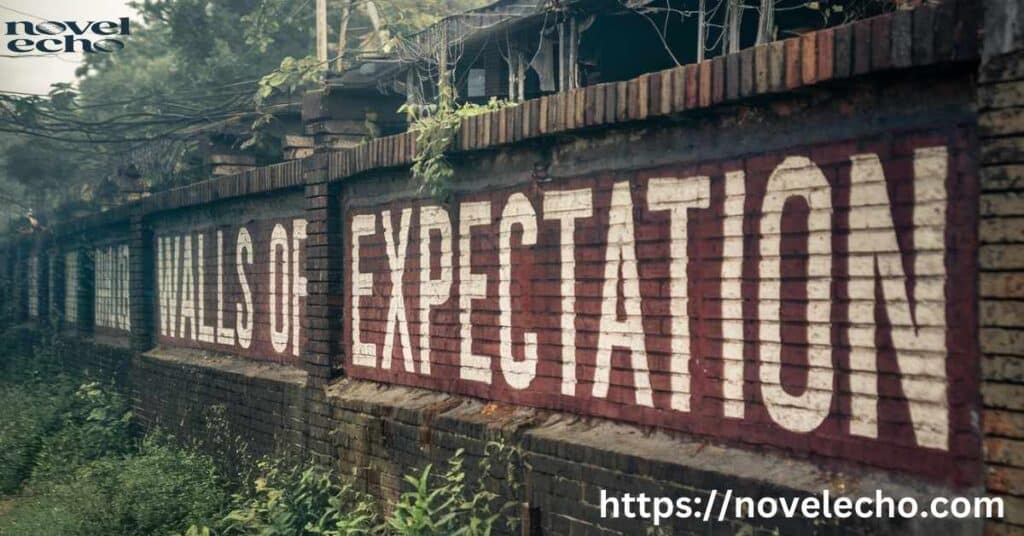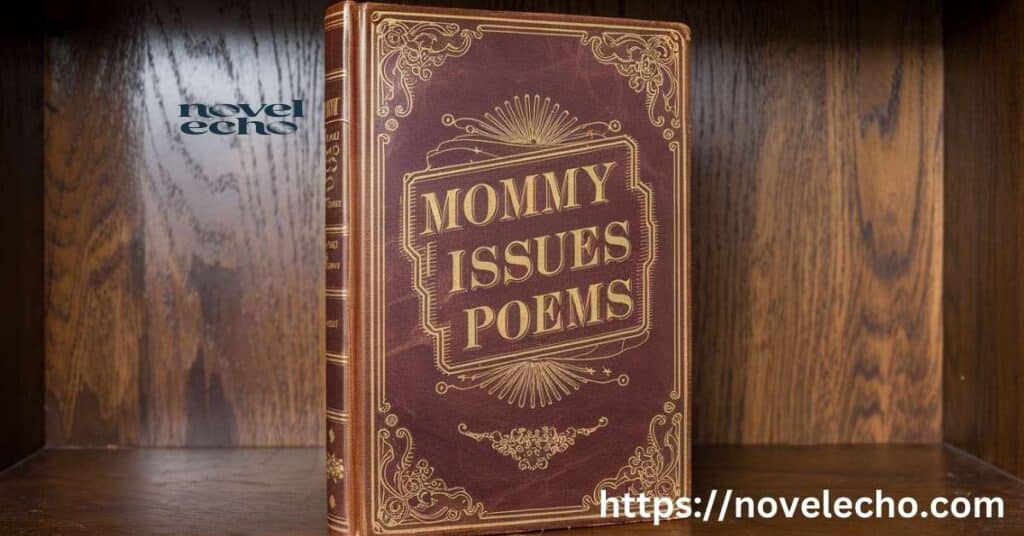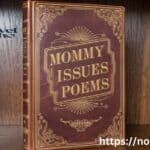The relationship between mothers and their children can be filled with warmth, but it can also be shaped by emotional distance, unmet expectations, and complex conflicts. These experiences often create lasting imprints, forming the basis of many deeply resonant poems. Mommy Issues Poems dive into this complex dynamic, unraveling emotions and unresolved tensions that shape family bonds.
Through these Mommy Issues Poems, we’ll explore themes like parental pressure, identity conflict, and unspoken conversations. Each poem sheds light on the emotional turbulence within the family, revealing how mothers and children navigate these complexities. By sharing these stories, we hope to connect with readers who have experienced similar family dynamics.
In this collection of Mother-Child Relationship Poems, expect raw honesty and reflections on childhood trauma, unmet expectations, and the struggle for individuality. These poems don’t shy away from the emotional conflict present in many family relationships. Instead, they offer a space to acknowledge and heal.
Walls of Expectation

By: Olivia James
The Poem:
I grew beneath your shadow,
A seed unseen, ignored.
Your words, always so hollow,
Left me lost, and unexplored.
You built walls of expectation,
A fortress cold and tall,
But in my quiet desperation,
I struggled not to fall.
I chased the love you never showed,
But silence sealed my fate,
In a home where love was owed,
Yet too late to relate.
Now I stand beyond those walls,
With cracks that run so deep,
A child once small who still recalls,
The promises you couldn’t keep.
Summary:
“Walls of Expectation” is a poem about growing up with a mother who built emotional barriers. The speaker reflects on how their mother’s high expectations and emotional absence shaped their sense of self. The emotional distance is symbolized by the “walls” the mother built, creating a sense of abandonment and loss.
Inspiration Behind the Poem:
This poem was inspired by the struggles many children face when parental expectations overshadow their own desires. The silent pressure to meet these standards can fracture familial bonds, leaving unresolved wounds.
3-Line Explanation:
The poem reflects how a lack of emotional connection between mothers and children can create barriers. So the Mommy Issues Poems highlights unmet expectations and the toll it takes on personal identity. Emotional turbulence and silence leave lasting impacts.
Conversations Unspoken

By: Ethan Rowe
The Poem:
We sat at the table, words unspoken,
Tensions brewing, hearts near broken.
You taught me silence, how to wear it,
Yet all I wanted was to share it.
But the gap between us grew,
A chasm where love once flew.
The glances, sharp as knives,
Carved through both our lives.
I searched for your affection,
But found only your rejection.
In the silence, I screamed aloud,
Though you never turned around.
Summary:
“Conversations Unspoken” explores the theme of unspoken emotions in a strained mother-child relationship. The poem portrays how silence can act as a barrier between two people who should be close but are distanced by unexpressed feelings.
Inspiration Behind the Poem:
This poem stems from the experience of wanting to communicate with a parent but feeling unable to. The emotional distance, symbolized by silence, often prevents the healing of fractured relationships.
3-Line Explanation:
This piece delves into the struggle of communicating with a distant mother. It captures the pain of unspoken conversations and the emotional chasm they create in family relationships. The absence of open dialogue amplifies the isolation felt by the child.
Growing Up Unseen

By: Maya Winters
The Poem:
I grew up in the corners,
Of your life too full to see,
I was just a faded whisper,
Of what you wanted me to be.
Your gaze passed right through me,
A ghost that couldn’t scream,
And in your busy world of “me,”
I slipped into a dream.
I learned to live invisible,
To hide behind my name,
And every time you called for me,
You filled my heart with shame.
I grew up without your eyes,
To tell me who I am,
Now I stand beneath your skies,
And wonder where I stand.
Summary:
“Growing Up Unseen” is a heart-wrenching poem about the experience of feeling invisible in the presence of a parent. The speaker shares how the lack of attention from their mother made them feel small and insignificant.
Inspiration Behind the Poem:
Inspired by the struggle of children who grow up without emotional recognition from their parents, this poem captures the feeling of being unseen and the identity conflict that arises from it.
3-Line Explanation:
This poem addresses the emotional conflict of feeling ignored by a parent. It expresses the void left by a mother who is too preoccupied to notice her child, leading to struggles with self-worth.
Mother’s Silence

By: Jacob Ray
The Poem:
Your silence was louder than words,
A weight I couldn’t escape.
You gave me life but no space to fly,
And in your quiet, I took shape.
I tried to listen for your love,
In between the lines you never spoke,
But all I found was empty air,
And hopes that finally broke.
Each day, I longed for sound,
A laugh, a word, a cry.
Yet you, so still, never let it out,
And I was left to wonder why.
The silence that we shared was loud,
Too deafening to deny,
A gap too vast to cross aloud,
Too painful to supply.
Summary:
“Mother’s Silence” explores the painful absence of communication between mother and child. The poem speaks to the emotional distance that results from unspoken words and unresolved feelings.
Inspiration Behind the Poem:
This poem was born from the quiet pain experienced in families where love is implied but never explicitly communicated. It portrays the deep impact of silence in relationships.
3-Line Explanation:
This piece reflects on the weight of emotional silence in the mother-child bond. It highlights how the lack of verbal communication can become a barrier to connection, fostering emotional turbulence.
Echoes of Her Absence

By: Rachel Turner
The Poem
In the silence of empty rooms,
Where laughter should have bloomed,
I trace the lines of an absent face,
Longing for a mother’s embrace.
Echoes of words never spoken,
Tears fall, hearts unbroken,
In the void, I seek her hand,
But only shadows take a stand.
Through time, I searched her smile,
A fleeting glimpse, just for a while,
Yet distance always grew between,
A love unseen, a bond unclean.
Now in whispers, her name I say,
Hoping the ache will fade one day,
But echoes fill the space inside,
Where once my mother’s love would hide.
Summary of the Poem
This poem explores the pain of growing up with an emotionally distant mother. The speaker reflects on the absence of affection and the void left behind, as they yearn for a connection that never materialized. The “echoes” symbolize the unspoken words and unfulfilled desires that linger.
Inspiration Behind the Poem
Rachel Turner drew from personal reflections on relationships marked by emotional absence. She delved into the theme of longing for a mother’s warmth while wrestling with the unresolved feelings that follow. Turner’s words capture the emotional distance between mother and child, emphasizing the void felt by the speaker.
The Weight of Unmet Expectations

By: Samuel Greene
The Poem
She laid before me a list,
A life I must never resist,
The path was paved, not by my feet,
But by the standards I must meet.
A burden placed on shoulders weak,
For her approval, I dare not speak.
Her dreams, her goals, her silent plea,
Had no room for the real me,
In every look, I saw her frown,
In every step, I felt weighed down.
Now, as I walk my chosen way,
Her expectations still hold sway.
Summary of the Poem
This poem highlights the suffocating weight of a mother’s unmet expectations. The speaker feels trapped by the demands and desires imposed upon them, struggling to carve their own identity while navigating the pressure to meet their mother’s ideals.
Inspiration Behind the Poem
Samuel Greene took inspiration from his own journey of battling parental expectations. The poem reflects the universal theme of identity conflict in families where children feel compelled to meet the high standards set by their parents, even when those standards stifle their individuality.
Tangled in Her Shadow

By: Lily Carter
The Poem
In every room, her shadow looms,
A constant presence that consumes,
Her voice, though absent, fills the air,
I live beneath her unspoken glare.
Her past mistakes, her faded dreams,
Are tangled in my own routines.
I try to run, to break the chain,
Yet still, I feel her quiet reign,
No matter where I plant my feet,
Her shadow follows in the heat.
I crave to live a life my own,
Yet find myself, by her, overthrown.
Summary of the Poem
“Tangled in Her Shadow” explores the experience of living under the influence of a mother’s unresolved struggles. The speaker feels trapped beneath the weight of their mother’s past, as though they cannot escape her presence, even when she’s not there. The shadow symbolizes the lingering influence of their mother’s life choices.
Inspiration Behind the Poem
Lily Carter found her inspiration in the complicated nature of family legacies. The poem represents the emotional weight of being caught in the shadow of parental failures or expectations, often passed down unconsciously, trapping the next generation in unresolved turmoil.
Between Love and Resentment

By: Aaron Wells
The Poem
Love’s a tether, but so is hate,
Two sides of a mother’s fate.
She loved me with a heavy hand,
And built a castle on quicksand.
For every kiss, a word unkind,
For every hug, a scar defined.
I loved her, yes, but learned to fear,
The bitter words that drew me near.
Caught between love’s heavy weight,
And the sharp sting of her harsh fate.
In the space between heart and mind,
A battle rages, undefined.
Summary of the Poem
This poem delves into the complex emotions of a relationship marked by both love and resentment. The speaker expresses the tension of feeling loved but also hurt by their mother’s actions, reflecting the emotional conflict that arises when affection and pain intertwine.
Inspiration Behind the Poem
Aaron Wells wrote this poem as an exploration of duality in family relationships. Inspired by his own life and others’ experiences, Wells captures the complicated feelings that come with loving someone who has caused emotional pain. The poem reflects the struggle to reconcile affection with the scars left behind.
Conclusion
Mommy Issues Poems offer a unique glimpse into the emotional complexities of mother-child relationships. Each poem, filled with raw emotion, reveals the deep impact of emotional distance, parental expectations, and unresolved tensions. They open the door to reflecting on one’s own experiences, encouraging healing through acknowledgment.
These Mother-Child Relationship Poems aim to give voice to the often unspoken feelings many individuals carry throughout their lives. By exploring complex family dynamics, they allow readers to see their struggles mirrored in these poetic expressions. This connection fosters understanding and encourages emotional exploration.
Poetry on emotional conflict within families helps us navigate the turbulent waters of unresolved feelings. Whether it’s through unspoken conversations or the struggle for identity, these poems provide a space for reflection and growth, resonating with anyone who has experienced the complexity of family bonds.
FAQ’S
What are “Mommy Issues Poems” about?
“Mommy Issues Poems” focus on the complex emotions tied to strained mother-child relationships, such as emotional distance, unmet expectations, and identity struggles.
Why is emotional distance a common theme in these poems?
Emotional distance reflects the unspoken tension many experience in their relationships with mothers, leading to feelings of longing and unresolved pain.
How do these poems address parental expectations?
The poems highlight the pressure of living up to parental standards, often resulting in identity conflicts and feelings of inadequacy.
What is the significance of the mother’s “shadow” in these poems?
The mother’s “shadow” symbolizes lingering influence and control, even in her absence, trapping the speaker in unresolved emotional ties.
Do these poems offer resolution to the mother-child conflicts?
Most poems explore the ongoing struggle without clear resolution, focusing on the emotional complexities rather than a tidy ending.

David Jonus is an experienced writer with a deep passion for the world of literature. As the voice behind Novel Echo, David explores the beauty of words, offering readers inspiring guides, timeless poetry, and thought-provoking reflections. With a focus on celebrating the magic of storytelling, David crafts articles that resonate with both seasoned and aspiring literature lovers.







